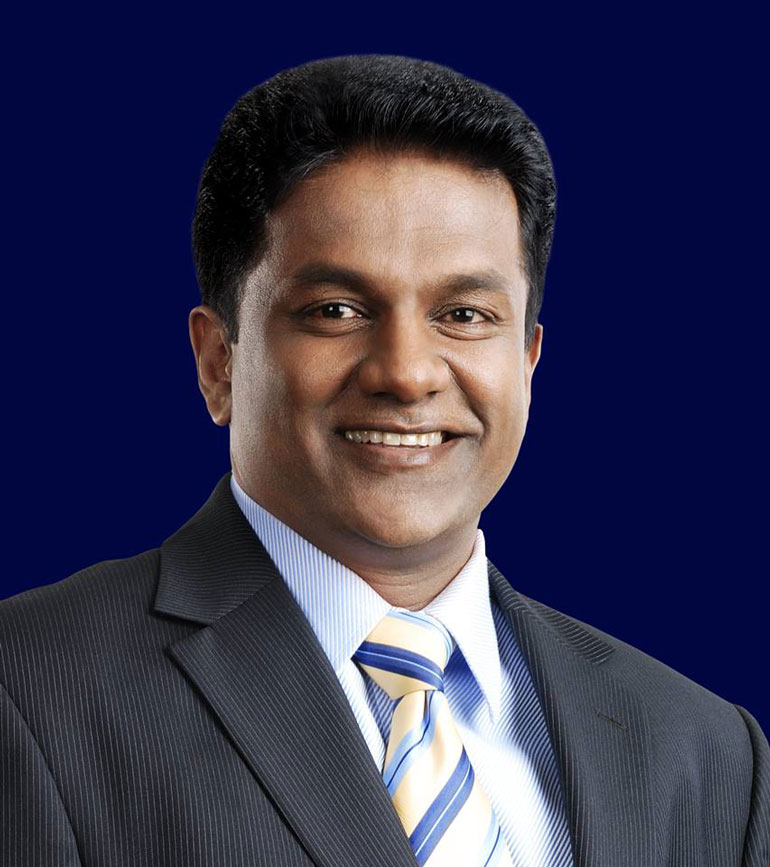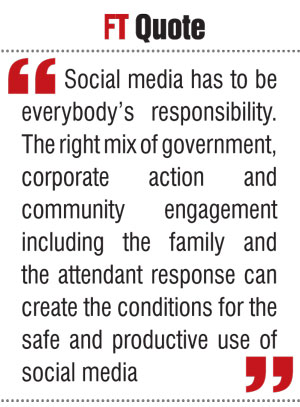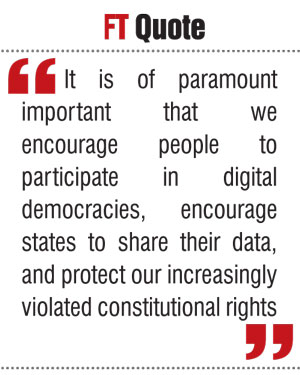Saturday Feb 21, 2026
Saturday Feb 21, 2026
Saturday, 24 October 2015 00:00 - - {{hitsCtrl.values.hits}}

Deputy Speaker of Parliament Thilanga Sumathipala
Threats to privacy and individual freedoms
Following is the address by Deputy Speaker of Parliament Thilanga Sumathipala titled ‘Democracy in the Digital Era and the Threats to Privacy and Individual Freedoms’ delivered at the 133rd Sessions of the Inter Parliamentary Union (IPU), held from 16-21 October in Geneva, Switzerland
Chairman, dear colleagues, ladies and gentlemen present at this august gathering, greetings from Sri Lanka! It’s my pleasure to address you on the topic ‘Democracy in the Digital Era, and the Threats it can pose to Privacy and Individual Freedoms’.
As we all know, what we want for ourselves is freedom of expression which is a fundamental right at the heart of any democratic society. However, it is also restricted by other important values, including the right to privacy and individual freedoms. Of concern is the misuse of private information, leading to infiltration of an individual’s private life and the family.
The International Telecommunications Union (ITU) has 193 member states. And according to the ITU, there are billions of mobile phone subscribers, around five billion people with access to television, and tens of millions of internet users every year.
We have moved from analogue to digital and the transformation has been remarkable. Digital democracy has flourished in almost all parts of the world and online sites have become the platform for vibrant discussions and debates across the globe. In fact, some websites are engaged in exposing corruption and official excesses. They, thereby, contribute towards good governance while also ensuring the right to information.
In the digital era, social media has surpassed the print media as a purveyor of information. The internet, for example, disseminates news and opinions including intimate, private information of individuals; similarly, social media blogs and other online sites also provide easy and free access to information – both public and private. As such, it has led to many people concluding that there is no recourse to legal protection. This has also led to the belief that there is potent threat to privacy, dignity and individual freedoms.
The latest statistics reveal that one in every four Sri Lankans regularly use the internet while Facebook clearly dominates with over 2.5 million accounts as at end of December 2014. In addition, the youth, especially, are predominant users of Twitter, WhatsApp, Viber and YouTube. 
You would be interested to know that of Sri Lanka’s population of over 20 million people, 4.7 million are internet users, 2.8 million are active users of social media, there are 27.4 million mobile connections which show that there is a very large percentage of the population having more than one connection. In addition, 2.2 million people are active social mobile users.
But we have to bear in mind not only the good side of social media – it also has a bad and an ugly side to it – as witnessed globally – the use of bad language, promoting extremism and violence, exposure to pornography, among other negative practices.
As we are aware, the law is locked in a struggle to reconcile privacy, individual freedoms and free speech within a democratic framework.
In Sri Lanka, technological innovations have been used as a tool for a change towards democracy. Social media networks, through their penetration, have facilitated and spurred citizens to engage in organising and generating awareness of political mobilisation towards democracy, as witnessed during the presidential and general elections held this year.
As we all know, a post will perhaps reach around two million people – on the other hand, if its contents are denied, and objections posted, it will perhaps reach around 5,000 people – a minute percentage. Therefore, how does one combat this issue?
In my view, the digital world is more controllable – we have better clarity; better quality and I would like to emphasise, we can have better control! And regulation can be put in place. Even though technological advancements can pose a virtual threat to democratic rights, the digital world can be controlled whereas analogue could not have been controlled.
The ITU sets and publishes regulations and standards relevant to electronic communication and broadcasting technologies. While such recommendations are non-binding, another important aspect of the ITU’s mandate is to help emerging countries to establish and develop their own telecommunication systems. As such, may I respectfully suggest that the IPU can play a pivotal role if it collaborates with the ITU to deal with emerging challenges in this sphere.
Governments should enforce legislation keeping in mind the rate in which technology keeps evolving. Blocking sites or imposing censorships are deemed to be counter-productive; on the other hand, we need to enhance our efforts to educate the people and moot literacy.
The rule of law seems like an illusion – the rules we vote on do not apply to all. Laws have to be applied to all – equally; our opponents should not be those who are targeted.
In a recent addition to the UN Charter on Human Rights, our digital persona should, in theory, enjoy the same rights to privacy as an offline persona. Sadly, this is not so. It is therefore of paramount important that we encourage people to participate in digital democracies, encourage states to share their data, and protect our increasingly violated constitutional rights.
Social media has to be everybody’s responsibility. The right mix of government, corporate action and community engagement including the family and the attendant response can create the conditions for the safe and productive use of social media. However, at the end of the day, there is no substitute, whatsoever, for individual responsibility.
The Governments of Canada, India, New Zealand, United Arab Emirates, the United States, the United Kingdom and the Republic of South Africa have a Social Media Policy in place. Such policies are meant to maximise potential and minimise challenges as a result of the extensive use of social media.
May I respectfully request this forum to formulate a resolution to promote civilian participation in the digital era, engage in free exchange of information and ideas, and have equal access to the internet – which would enhance democracy while at the same time safeguard cultural values and ensure privacy and individual freedoms.
Thank you and enjoy the rest of the IPU sessions as well as your stay in Geneva!